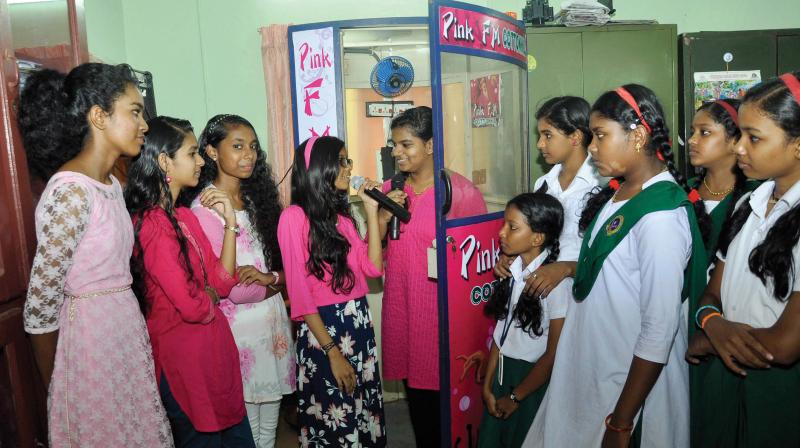Time to right a wrong
Artificially boosting marks and grades for CE, without providing learners sufficient learning experiences, is unscientific and unfair on learners.

There is a lot of heartburn among teachers over lavish marks being awarded to students for sloppy work under Continuous Evaluation (CE), but the fault lies with teachers who trip up on designing and implementing innovative learning experiences for learners through experiments, surveys, projects and seminars on a regular basis. This reflects on the inadequacy of teacher-support measures, including the poor quality of teacher training. Many teachers are under the mistaken belief that CE activities are stand-alone evaluation activities, to be used only for assessment of learning. Many teachers encourage students to procure ‘products’ for these activities from private suppliers connected to the guide lobby. Teachers even get instructions from high-ups to be liberal in these ‘assessments’. Artificially boosting marks / grades for CE, without providing learners sufficient learning experiences, is unscientific and unfair on learners.
The child-centred, activity-oriented school curriculum, developed in 1995 for six districts (using funds from the District Primary Education Programme-DPEP), was abruptly extended by the state government to all districts in the state in 1998. This extension of coverage was taken up by the state government without putting in place systems and structures in those districts for teacher support as was available in DPEP districts, inviting widespread resistance from teachers and parents. Later the approach was casually extended to higher classes also. The state government did not take adequate measures to prevent the dilution of the quality of the curriculum and its implementation. Instead, “textbook revision committees” were set up year after year with the specific objective of diluting the new curriculum.
The dilution of the activity-oriented school curriculum and its implementation peaked during the tenure of Education Minister Nalakathu Soopy. Mr Soopy took the controversial decision to do away with grading at the SSLC Examinations in 2003. Grading was originally introduced in primary classes (replacing marks) in 1995, along with Continuous and Comprehensive Evaluation (CCE). Experiments, projects, surveys and seminars were very much a part of the new school curriculum which was designed within the social constructivist theoretical framework. Teachers used to be provided regular training to enable them to take up these activities as part of regular classroom practices. Teachers were also trained to use these learning events to continuously assess the performance of students while they participated in these activities.
Students appearing for the SSLC Examination in March 2003 were brought up on student-centred learning experiences and CCE since their primary grades. Mr Soopy’s controversial decision to suddenly give up grading (and re-introduce marks) at the SSLC Examinations and also to dilute CE had far-reaching consequences. There were allegations that Mr Soopy had succumbed to pressures by the guide-book lobby and teacher associations, who made money by printing question papers for various term-end examinations. The decision to reduce the emphasis on examinations and marks had the potential to severely damage their business. The same was the case with the guidebook and tuition-home lobbies that catered to ‘needs’ of students, who relied on them for examinations.
The massive outcry over Mr Soopy’s controversial decisions ultimately led to his resignation. His successor, Mr E T Mohammed Basheer, restored grading at the SSLC exams and made some efforts to salvage the situation. But the damage done on the curriculum and its implementation was quite substantial. Earlier, Mr A.K.Antony, the then chief minister, had taken the initiative to set up a State Education Commission, headed by Dr. U.R. Ananthamurthy, to study ground realities and suggest remedial measures. Dr Ananthamurthy, after elaborate consultations, submitted a report to the government pointing out serious implementation flaws, including those connected with CCE. Mr Soopy merely shelved the report.
In 2004, Arjun Singh, the then MHRD Minister, initiated a reconstitution of the Central Advisory Board on Education (CABE) with luminaries from the education sector, including Dr. Ananthamurthy. A high-level committee, led by Prof Yash Pal, was constituted at the national-level to develop the National School Curriculum Framework (NCF) 2005. NCF 2005, which was to be implemented by the CBSE, ICSE and all state boards across the country, prescribed the introduction of student-centred, activity-based classroom processes and continuous and comprehensive evaluation features that were originally introduced by Kerala in 1995. However, the state has not been able to capitalise on the head-start it had in the implementation of student-centred pedagogy. The teacher-support efforts have become mechanical and no adequate needs assessment is made before implementing teacher-training programmes. The current practice of treating CCE as a means for showering marks / grades on students for the purpose of artificially enhancing results is simply ridiculous.
(The author, who retired as government secretary, piloted the district primary education programme in Kerala)

